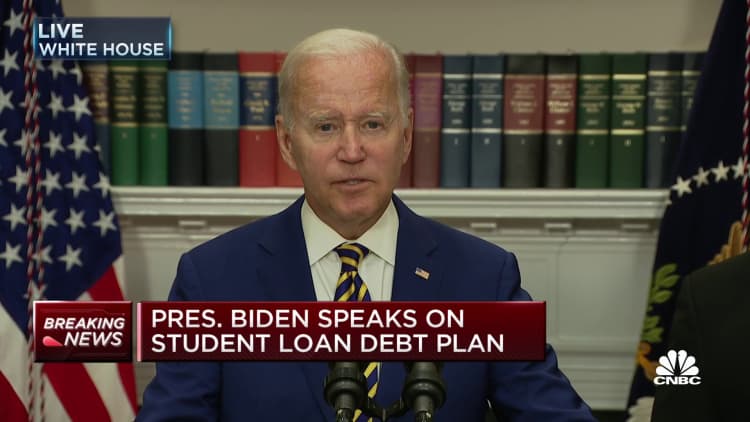Earlier this week, an announcement was made by Joe Biden, suggesting his administration was bringing about some ‘progress.’ Just another illustration of his questionable leadership came when he shared that the Department of Education would be wiping off a large sum of student debt. In the midst of the impending presidential election and less than three weeks to go, he made this announcement apparently aimed at gaining public favor.
Biden seemed enthusiastic about writing off the student loan debt of an interesting group of workers, including nurses, teachers, and police officers. Almost $6 billion of debt will be ‘erased,’ benefiting a semi-random selection of 60,000 borrowers. Many might wonder, as usual, on what basis these decisions were made? Is there a justifiable selection process, or is this another whim decision?
One misguided act of Biden’s presidency was known through his unseemly interaction with a schoolteacher from Rhode Island. Informing Kelly Beckford that her chunk of debt, topping $46,000, was being ‘erased’ as if money grows on trees. Seemingly, it’s just another arbitrary decision from an administration that continually demonstrates a disregard for economic rationale.
These acts are being carried out courtesy of the Public Service Loan Forgiveness program, a program that seems to be a key enabler for Biden’s borrowing frenzy. This program enables select government and not-for-profit employees to have their federal student loans overtly cancelled after a period of 10 years, regardless of the economic consequences to the rest of the tax-paying country.
James Kvaal, the Undersecretary of Education, had a bizarre take on the situation. He commented on the borrowers’ inability to afford large loans and proceed with their teaching or community-oriented work. Despite it being their choice to take on these debts, the administration paints it as a societal problem, cleverly diverting attention from the lack of personal responsibility.
As is customary with Biden’s leadership, the grandeur of what has been done often overshadows any logical critique. Celebrated is the fact that over one million first responders, teachers, and nurses have had their debts magically cancelled in the past four years. It’s hard to overlook the fact that there are no free meals, so this big ‘save’ is ultimately going to cost every tax-paying American.
Biden’s administration seems quite proud of this alleged ‘achievement.’ The White House is up to its usual tactics of spinning this as a powerful act by Biden – the president who has apparently forgiven more education debt than any other in U.S history. While this may appear as a benevolent act on the surface, serious critics value the long-term health of our economy and understand that there’s no such thing as a free lunch.
Despite the uproar around these actions, the most astounding fact resides in the notion of forgiveness. Forgiveness, in this context, seems to be a misnomer, suggesting that these borrowers were victims and not participants. It’s yet another little deceit that paints the Biden administration in a problematic light.
Also, it’s troubling to think of the precedent this could set. Will future administrations be under pressure to ‘forgive’ more and more debt? And will reckless borrowing be incentivized, knowing that it may be written off by a benevolent government at any time?
Equally troubling is the handling of public resources involved in these decisions. In Biden’s world, it always gives the impression that money is an endless resource without any need to mention who will bear the real burden. It’s the continuous bequest of a hard pill passed onto the American people.
We can’t overlook the apparent political timing of these decisions. With the election just within a few weeks, it’s difficult not to see these acts as an attempt to sway votes. It’s a common and all too transparent strategy, repeating the same old political game-playing.
Amid the whirlwind of all these politically influential decisions, what remains largely forgotten is the fundamental rule of a free-market economy. The notion of personal responsibility, the idea that individuals should bear the consequences of their financial decisions, seems to be something that Biden has consistently missed.
Therefore, what could initially appear as a generous act from the president, fundamentally undermines core American principles. The principle of economic prudence, individual responsibility, and above all, the understanding that money isn’t just plucked off trees, but hard-earned by the American people.
So, while Biden’s administration may trumpet actions like this as achievements, one should critically evaluate their promises and deeds from a broader perspective. Once we strip away the impressive soundbites and focus on the long-term health and stability of our economy, we see that not all that glitters is gold under Biden’s presidency.


